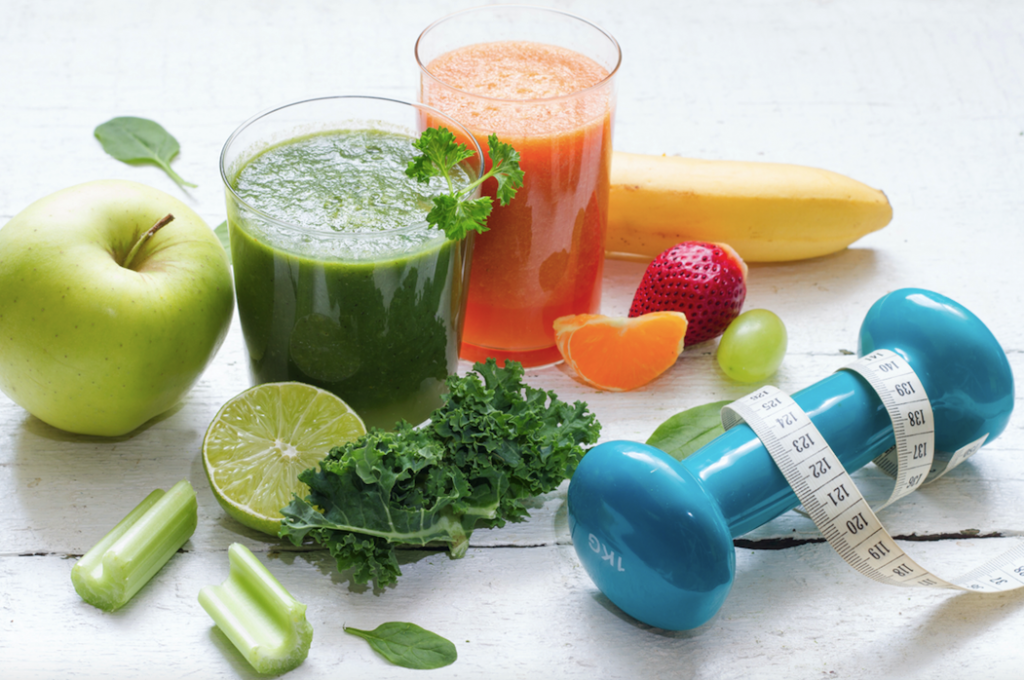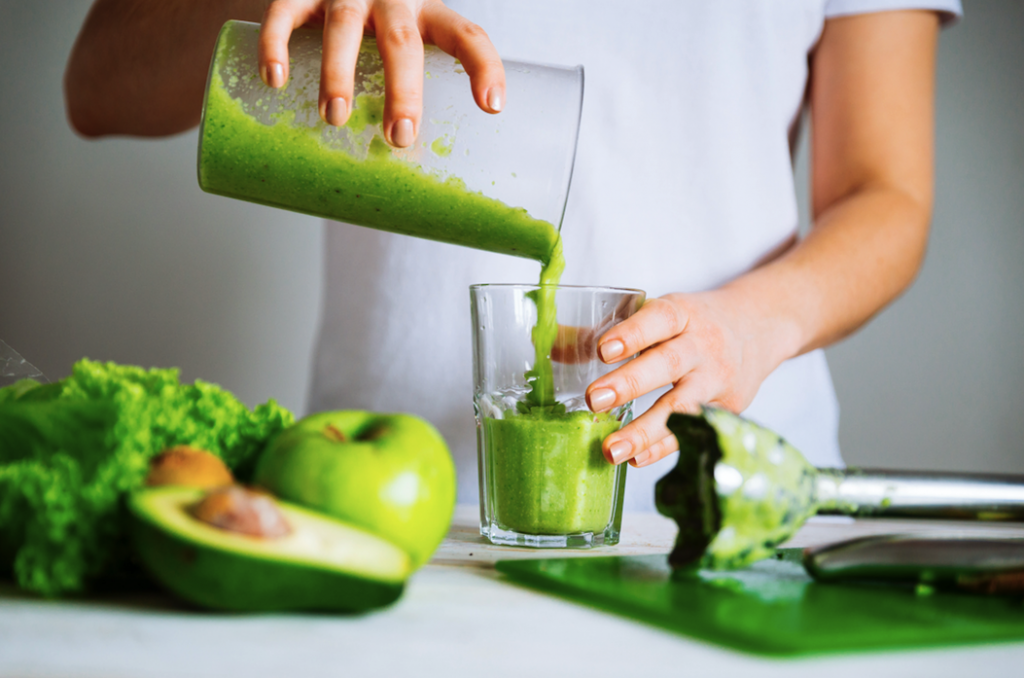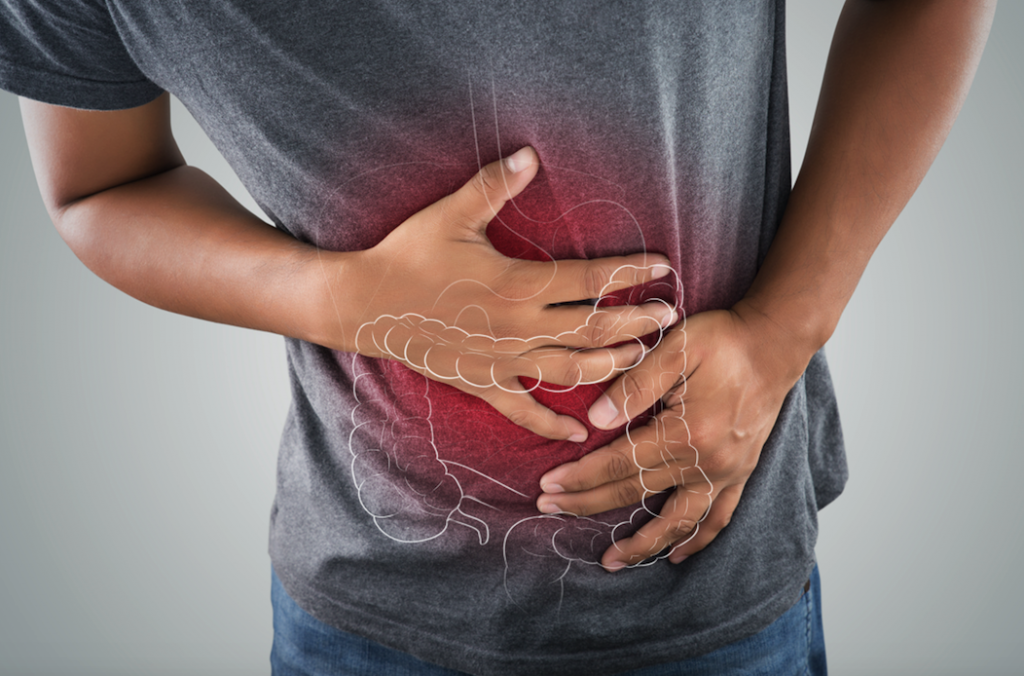
Liquid diets and cleanses, typically referred to as “detox” diets, have become increasingly popular over time—often linked to the desire of living healthy lifestyles or losing weight. The United States’ National Centre for Complementary and Integrative Health defines “detoxification” diets as programs that “have been suggested as ways to remove toxins from [the] body, lose weight, or promote health” (NIH, 2019).
These diets come in a wide range of options, each with different levels of intensity and duration—typically “lasting anywhere from three days to three weeks” (Nierenberg, 2014). Although they may be considered by some individuals as quick solutions for healthy bodies or weight loss, they can be “unsafe and falsely advertised,” leading to negative side effects on our health and wellbeing (NIH, 2019). This blog post will analyze the efficacy of liquid diets and cleanses, sharing research and safety concerns for those interested in studying nutrition.
Exploring the Efficacy of Detoxification Diets and Cleanses
Detox diets can be extreme in some cases and moderate in others, involving “total starvation fasts [or] simpler food modifications” (Bjarnadottir, 2019). These diets typically include the following: fasting for 1 to 3 days, liquid-only diets, or avoiding foods “high in heavy metals, contaminants, and allergens” (Bjarnadottir, 2019). Individuals on these diets can also be relying on dietary supplements or herbs for additional nutrition, using “colonic irrigation” practices that aim to cleanse the colon through enemas, laxatives, or colon hydrotherapy (NIH, 2019).

Those attending nutritionist school need to consider the aim and purpose of these diets, which are meant to promote weight loss or improve health by removing toxins from the body. While some individuals may have experienced positive results during these cleanses, the efficacy of these diets remains unclear and scientifically unproven (Bjarnadottir, 2019). In these cases, positive reactions could be attributed to the elimination of processed foods and unhealthy substances, or the introduction of important vitamins and minerals that needed to be replenished (Bjarnadottir, 2019). In fact, only a small number of studies show detox diets improving liver detoxification and removing toxins—though they have been “hampered by flawed methodologies and small sample sizes” (Klein & Kiat, 2015). Studies linking weight loss to these detox diets are also considered “low quality—with study design problems, few participants, or lack of peer review” (NIH, 2019).
Understanding the Safety Concerns for Those Earning a Nutrition Diploma to Consider
Liquid diets and detox cleanses can lack the necessary nutrients, providing insufficient protein and fibres (Nierenberg, 2014). Eating these nutrients is essential in promoting a healthy and well-balanced diet, and choosing not to can lead to numerous unpleasant side effects—including “fatigue, dizziness, hair loss, gallstones, cold intolerance, electrolyte imbalance, and heart damage” (“Liquid Diets,” 2012).
Additional safety concerns should be addressed regarding the use of laxatives in these diets, potentially leading to dehydration and electrolyte imbalances (NIH, 2019). If not treated correctly, the liquids in such diets can contain harmful bacteria that cause illnesses—especially in children, the elderly, and those with compromised immune systems (NIH, 2019). Similarly, people with diabetes should avoid detox and liquid diets, consulting with health care providers before making any extreme dietary changes (NIH, 2019). This is particularly the case since “drinking so much juice could lead to unstable blood sugar levels” (Nierenberg, 2014).

Ultimately, those earning a nutrition diploma should be cautious when approaching detox and liquid diets, particularly since “no randomised controlled trials have been conducted to assess the effectiveness of commercial detox diets in humans” (Klein & Kiat, 2015). Instead, a focus on the body’s own detoxification system should be favoured. The human body is inherently “capable of cleansing itself,” depending on the liver to manage toxins (producing urea) that then travel to the kidneys and pass out of our bodies as urine (InformedHealth, 2016). Rather than promoting detox diets, nutritionists can support their clients’ wellbeing through healthy and well-balanced diets.
Would you like to attend a nutritionist college?
Contact Rhodes Wellness College for more information!
Works Cited:
Bjarnadottir, A. (2019, January 10). Do Detox Diets and Cleanses Really Work? Retrieved February 12, 2021, from https://www.healthline.com/nutrition/detox-diets-101
Klein, A. V., & Kiat, H. (2015). Detox diets for toxin elimination and weight management: a critical review of the evidence. Journal of human nutrition and dietetics : the official journal of the British Dietetic Association, 28(6), 675–686. https://doi.org/10.1111/jhn.12286
Liquid Diets. (2012, June 23). Retrieved February 12, 2021, from https://www.medicinenet.com/liquid_diet/article.htm
Nierenberg, C. (2014, November 25). 6 Potential Dangers of Juice Cleanses and Liquid Diets. Retrieved February 12, 2021, from https://www.livescience.com/48887-juice-cleanse-dangers.html
NIH, National Center for Complementary and Integrative Health, (2019, September). “Detoxes” and “Cleanses”: What You Need To Know. Retrieved February 12, 2021, from https://www.nccih.nih.gov/health/detoxes-and-cleanses-what-you-need-to-know
InformedHealth.org [Internet]. Cologne, Germany: Institute for Quality and Efficiency in Health Care (IQWiG); 2006-. How does the liver work? 2009 Sep 17 [Updated 2016 Aug 22]. Available from: https://www.ncbi.nlm.nih.gov/books/NBK279393/









